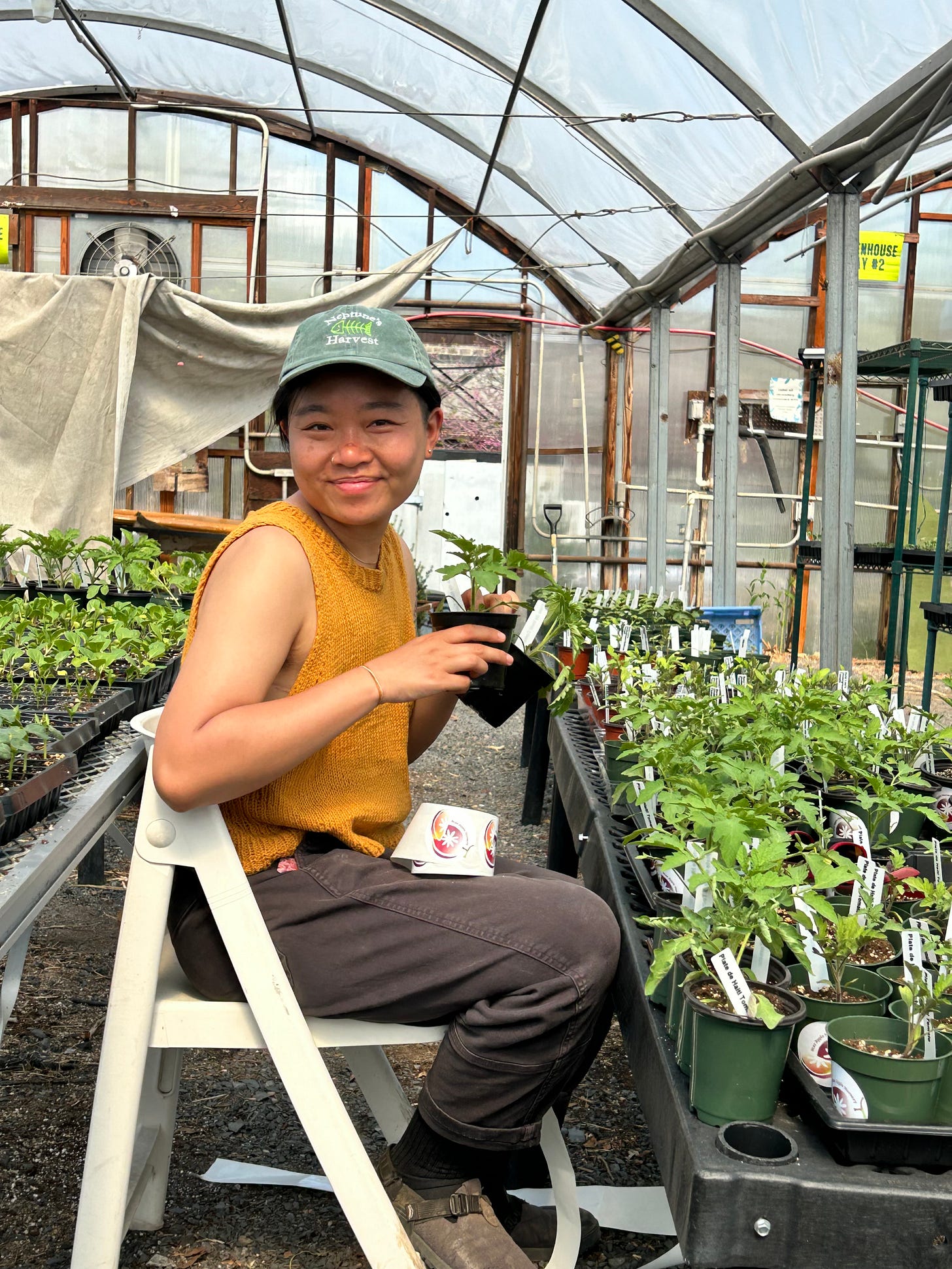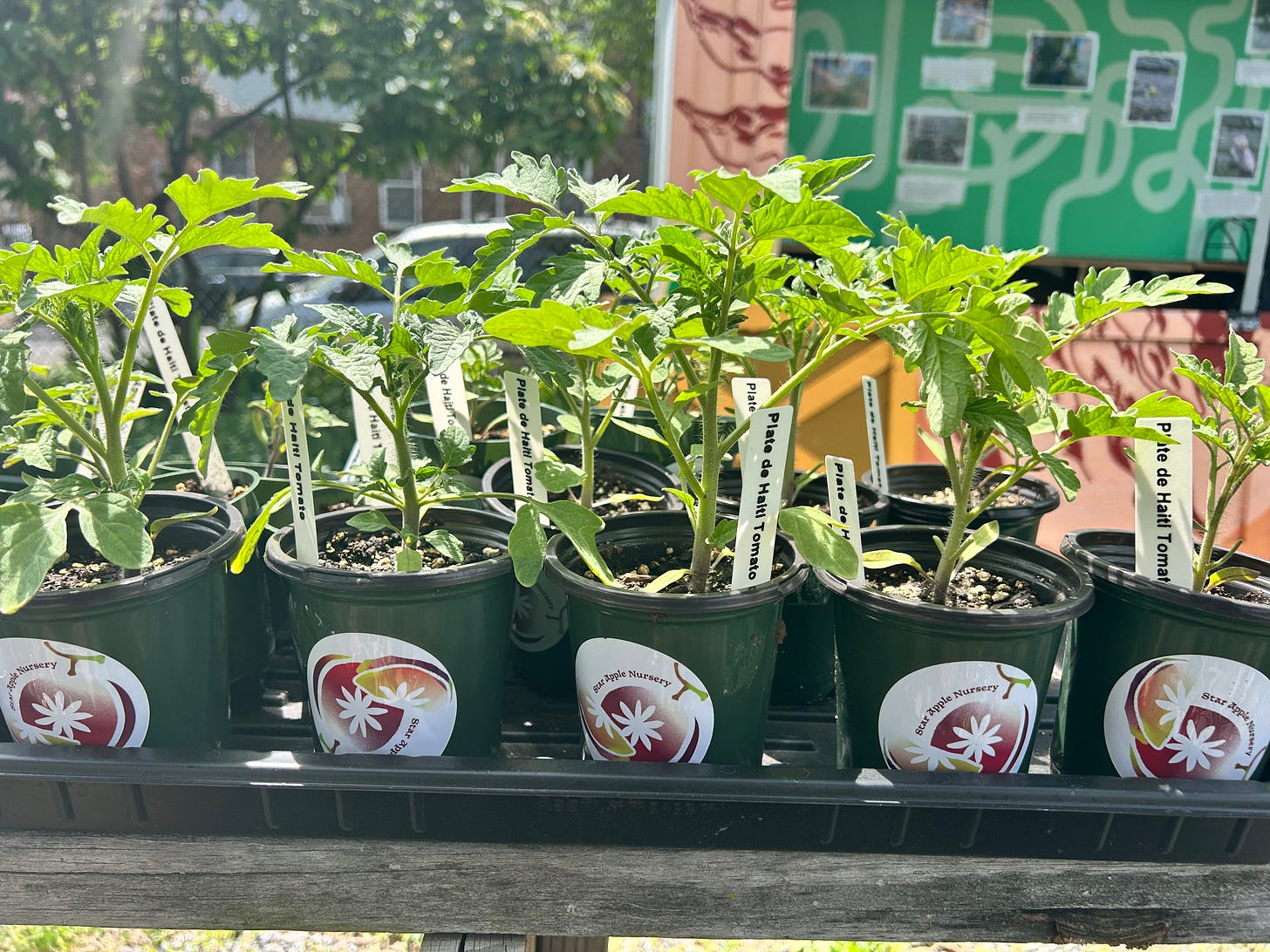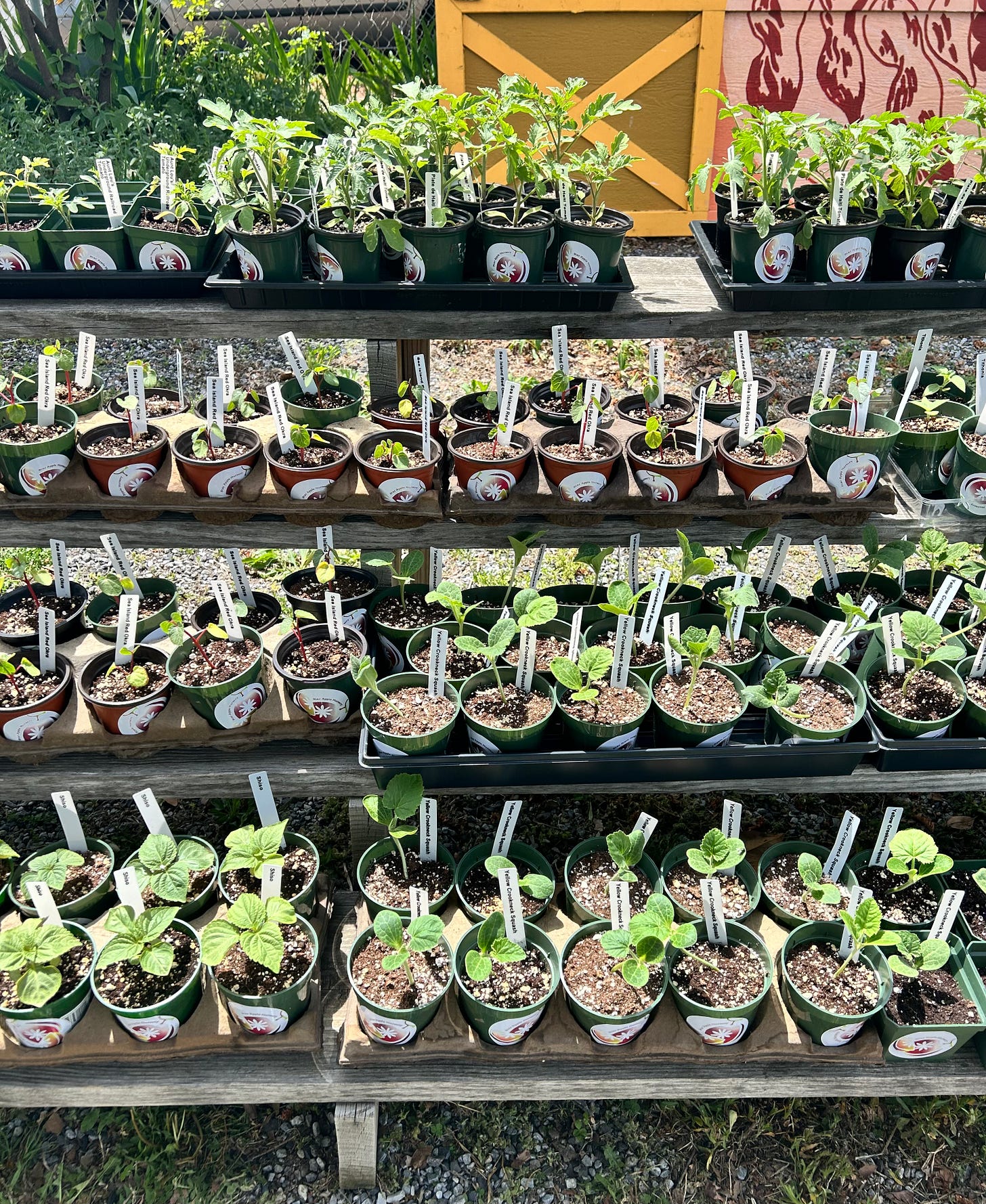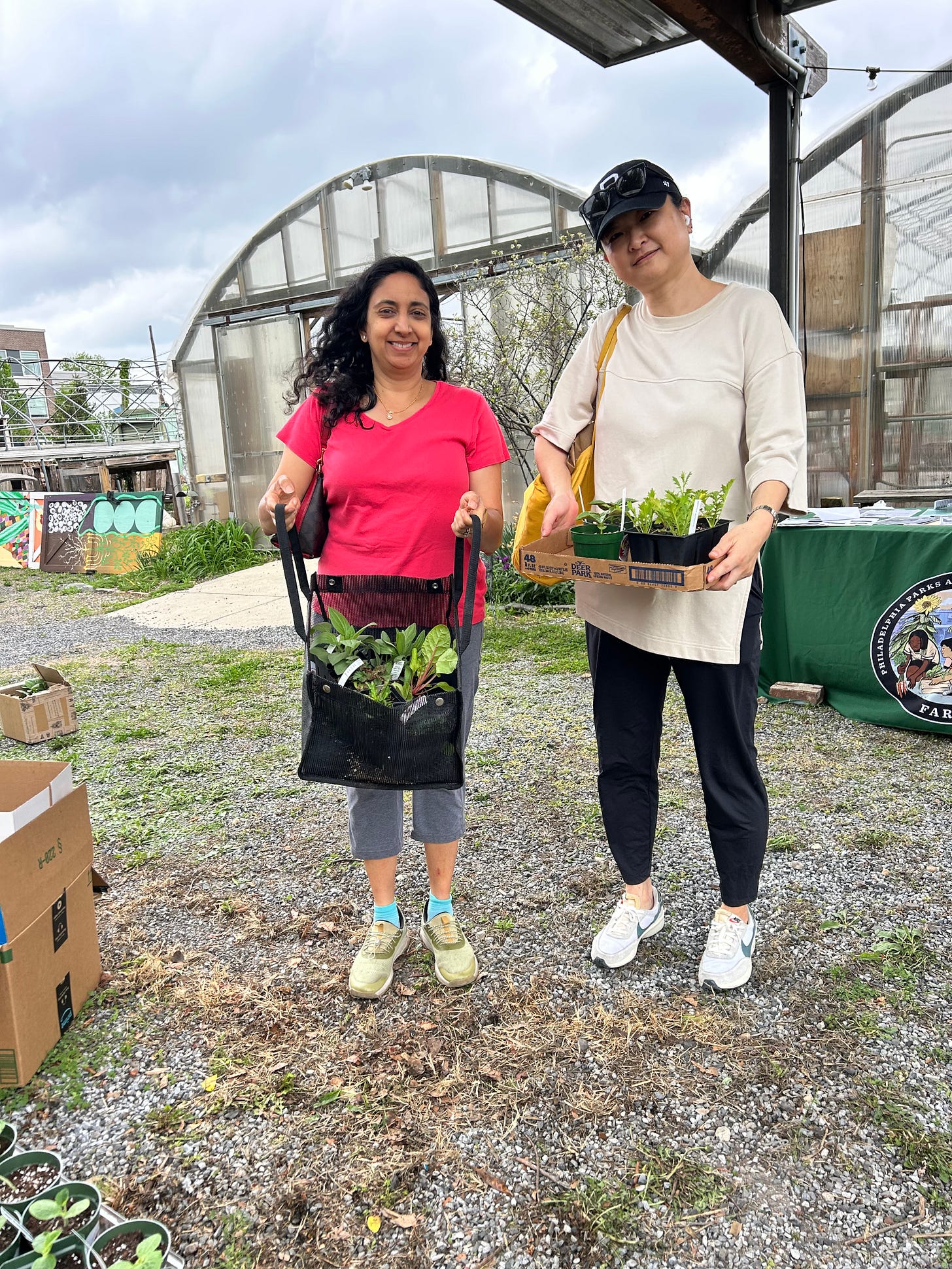I’ve been in the midst of a chaotic move this week, and many things at the farm have been moving too. I’ll be planting my seed crops soon—siling labuyo, Jamaican pumpkin, and cerassee—and I’ve been preparing the field. On Thursday my love Janine came to visit for the weekend, and we got everything ready for the Saturday plant sale. We sat in the sweltering greenhouse transplanting, stickering, and labeling pots. At one point we were talking about what it means to choose to nurture life in this world. That desire, and the responsibility it implies, has long been a clarifying force for me. What kinds of relations am I helping to cultivate right now? Do they feel enduring and flexible? Could they sustain an act of faith? Could they support something fragile and growing and new? These are questions I’ve thought about over the past week as my roommates and I navigated an unexpectedly exhausting moving process, with the invaluable help of our friends. Despite our best efforts, things went sideways. I’m increasingly learning that my focus shouldn’t be on whether things will go wrong (they will!). Instead, I want to ask myself: when things go wrong, where will I turn? Who can I trust? How does the fabric of my everyday hold up under these pressure tests?
Many of my loved ones live farther away than I would like, and it always feels special when we have moments of being integrated into each other’s daily rhythms. Janine and I ran countless errands in preparation for the plant sale and the move. We visited Nicky’s tortoises and picked up plant signs at Staples. We went to the dispensary and the grocery and taped up boxes of pantry items. It was raining the day of the sale, but the site was full of people eager for spring plant starts. I started taking photos of customers with their plants, wanting to document the joy and possibility that comes with planning a garden at the beginning of the season. Part of why I love plant nursery work is getting to hear people’s stories—about their tiny growing spaces and gardening failures, about the treasured recipes they hope to recreate and the pests that battle them for heirloom tomatoes. In the same way that I feel nourished by running errands with my friends, hearing about people’s gardens anchors me in the beauty of the daily and the mundane. There’s a Tiktok where an interviewer stops an older lesbian couple on the street and asks them to share a piece of advice. One of them smiles and says, “your love is your attention.” When people ask me for garden care tips or tell me stories about plants they’ve grown, we’re having a conversation about attention—about the continual questions of how to tend, how to listen, how to live in a way that helps things grow.












